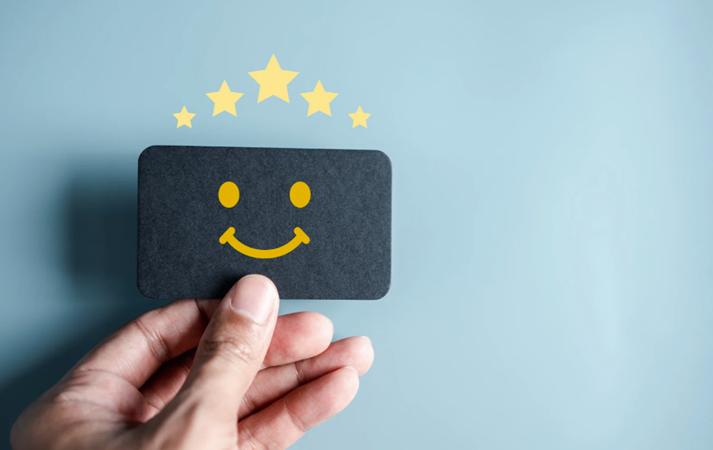Copyright ownership of AI-generated content: A marketer's guide
Introduction
In the rapidly evolving landscape of artificial intelligence (AI), generative and large language model have emerged as powerful tools for creating content. However, they also trigger complex questions concerning copyright and ownership. This blog aims to demystify these issues, offering marketers a perspective on copyright intricacies when AI intersects with content creation, particularly in the Canadian marketing context.
Legal position on GPT training data
The legal perspective on using copyrighted datasets for training AI models is still developing. These models often ingest text, images, and other intellectual properties that may be copyrighted. The critical question arises: Does this practice fall under "fair use," or does it transform the original content enough to be considered a new entity? Until legal precedents are firmly established, the ambiguity persists, necessitating caution among AI developers and users.
AI-generated content ownership around the world
United States
The U.S. has articulated that AI, by itself, cannot be considered to have authorship under copyright law. The U.S. Copyright Office mandates that AI-generated works must include perceivable creative input from humans to be copyright-protected. A landmark case, Thaler v. Iancu, emphasized this by denying copyright for works generated solely by AI.
European Union
The European Union is actively developing guidelines on AI-generated content. A nuanced approach is being considered, particularly in assessing the "inputs and outputs" of AI systems. The suggested four-step approach includes:
- Human authorship: Evaluating whether there is human authorship behind AI-assisted outputs.
- Originality: Determining if the work exhibits originality through human creativity and intellectual effort.
- Form of expression: Assessing whether the AI-generated output has a protectable form of expression under copyright law.
- Article classification: Clarifying if the output is classified as 'work' under EU copyright legislation.
United Kingdom
In the UK, the law directly states that a machine cannot be an author. However, cases like Shenzhen Tencent Computer Systems Co Ltd v. British Telecommunications plc indicate that programmers or operators could potentially be deemed authors. Further exploration and court rulings are needed to provide clear direction.
Canada
Canada has yet to produce conclusive case law regarding AI-generated content. While the legal landscape remains ambiguous, the prevailing consensus leans towards requiring human authorship for copyright claims.
Ownership variances by usage
Ownership and liability of AI-generated content can vary significantly between personal and commercial use. For personal use, the risks are minimal. In contrast, commercial applications such as marketing and research require much more clarity. Marketers need to differentiate between routine automated content, such as AI-generated product descriptions, versus more complex tasks, such as developing campaign strategies. In research contexts, implications extend to publications and data interpretation, among others.
Why marketers should care about ownership claims for AI-generated content
- Legal compliance and risk management: By understanding who owns AI-generated content, marketers can avoid potential lawsuits and copyright infringements, protecting their brand from costly legal battles. Staying informed about the legal landscape ensures marketers adhere to copyright laws and regulations, which can vary by jurisdiction.
- Intellectual property rights: Knowing who holds the copyright to AI-generated content helps marketers manage their intellectual property rights efficiently, ensuring they can fully leverage and protect their creations. Clear ownership definitions enable marketers to secure proper licenses for their content, ensuring legal and unfettered use.
- Brand reputation and trust: Properly managing ownership claims shows a commitment to ethical standards, which can enhance brand reputation and build trust with consumers and partners. Being transparent about the creation and ownership of content generated by AI can improve consumer perception and brand integrity.
- Strategic and financial implications: Owning the rights to AI-generated content can be a significant asset, allowing marketers to monetize their content through licensing, sales, and other revenue-generating activities. Clearly defined ownership reduces uncertainties and potential liabilities, making investments in AI technology more secure and appealing.
- Operational efficiency: Understanding ownership helps streamline the management of content assets, ensuring that all materials are legally compliant and can be used, reused, or repurposed without legal complications. By being aware of ownership issues, marketers can assess and mitigate risks associated with AI-generated content more effectively.
General considerations and implications for the marketing industry
As marketers increasingly leverage AI-generated content, several broad considerations and implications emerge:
- Originality and creativity: It is crucial to ensure that AI-generated content is both original and creative. Marketers can collaborate with AI to produce unique content that resonates with audiences while avoiding potential copyright issues.
- Legal and ethical responsibilities: Marketers should stay informed about evolving copyright laws and ensure that their use of AI-generated content complies with legal standards. Ethical considerations such as transparency and accountability in content creation should be prioritized.
- Licensing and rights management: Establishing clear licensing agreements for AI-generated content is essential. Marketers should delineate ownership rights and usage permissions to prevent legal disputes and ensure that all stakeholders have a clear understanding of content ownership.
- Human oversight and editorial control: While AI can significantly enhance content production, human oversight remains crucial. Marketers should exercise editorial control to ensure that AI-generated content aligns with brand values, maintains quality, and adheres to legal guidelines.
- Innovation and adaptation: Marketers should remain adaptable and innovative in response to rapid advancements in AI technology. Embracing AI tools while continuously evaluating their impact on content creation and copyright is vital for staying competitive.
Human intelligence and editorial changes
As AI-produced content becomes more prevalent, courts and legislative bodies are considering tests to gauge human involvement in these outputs. The "Turing Test" of copyright law may emerge, assessing whether the work reflects sufficient human creativity or is solely the product of an algorithm.
Conclusion
While AI offers unparalleled efficiency and innovation potential, it also treads into legally uncharted territory. It is important for marketers to understand the nuances of AI-generated content and copyright laws. It would be helpful to engage and collaborate with legal and compliance teams to navigate these complexities until more definitive legal frameworks are established. Marketers should exercise caution and keep informed of evolving guidelines and laws that shape these digital frontiers.




































